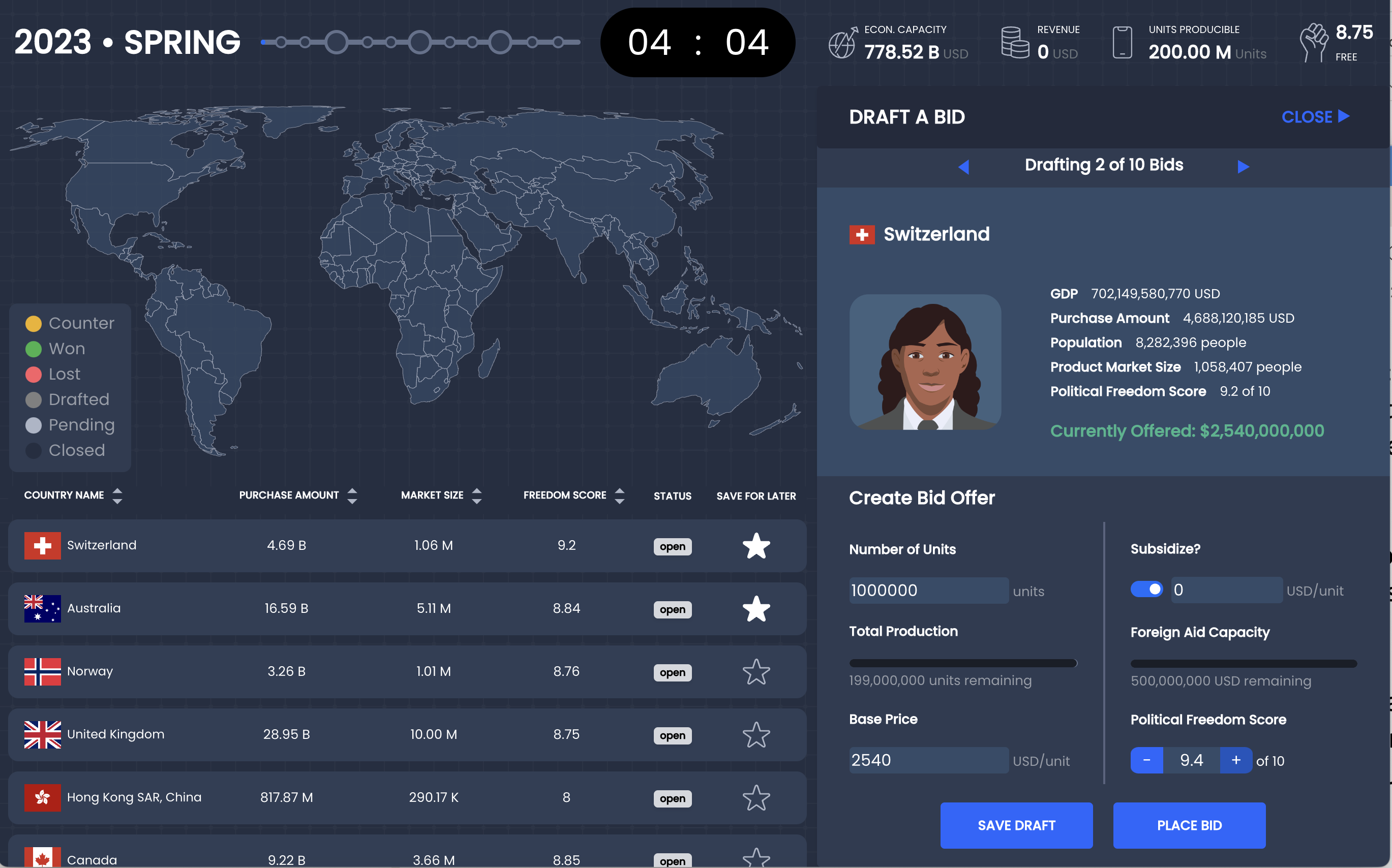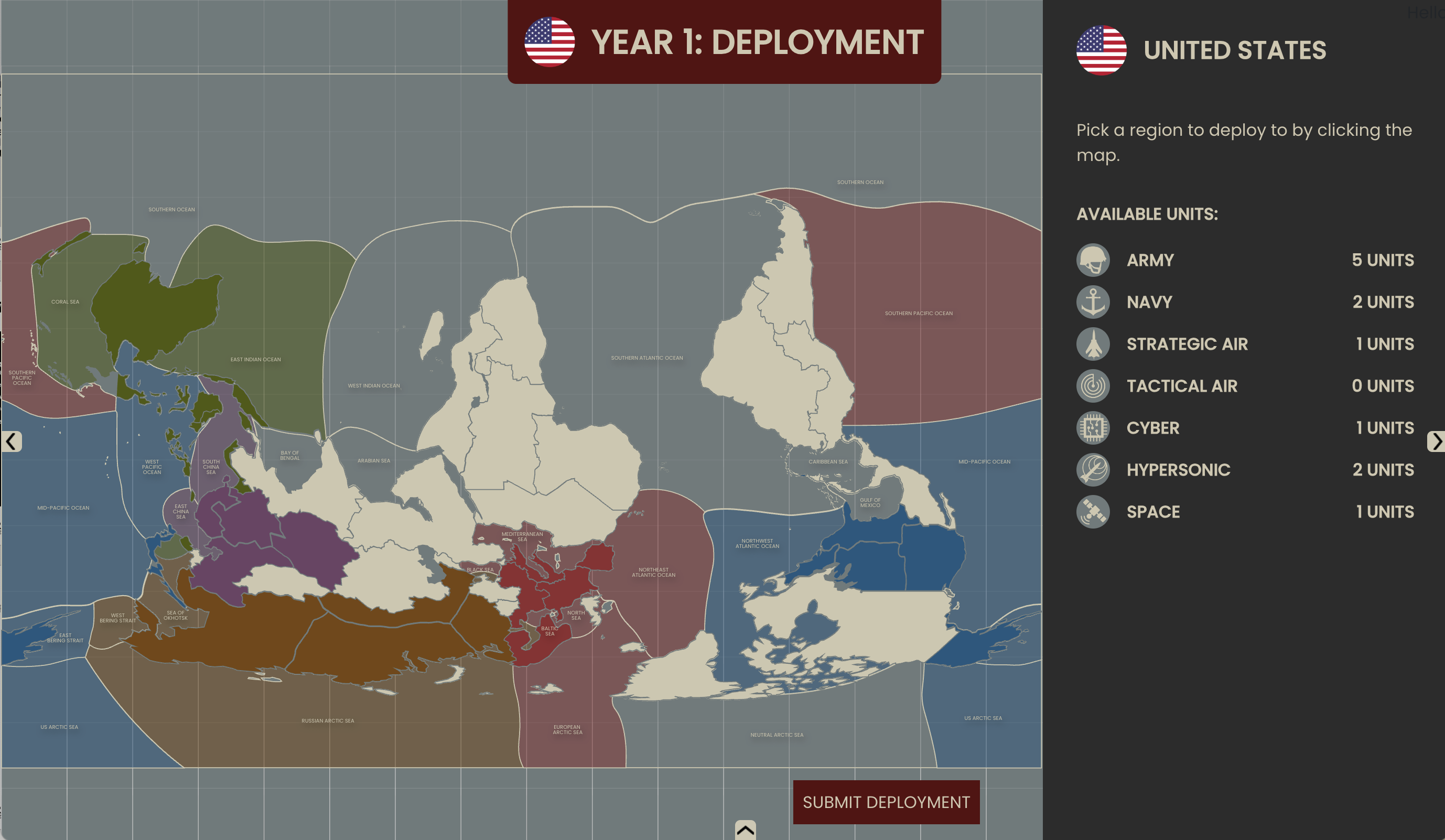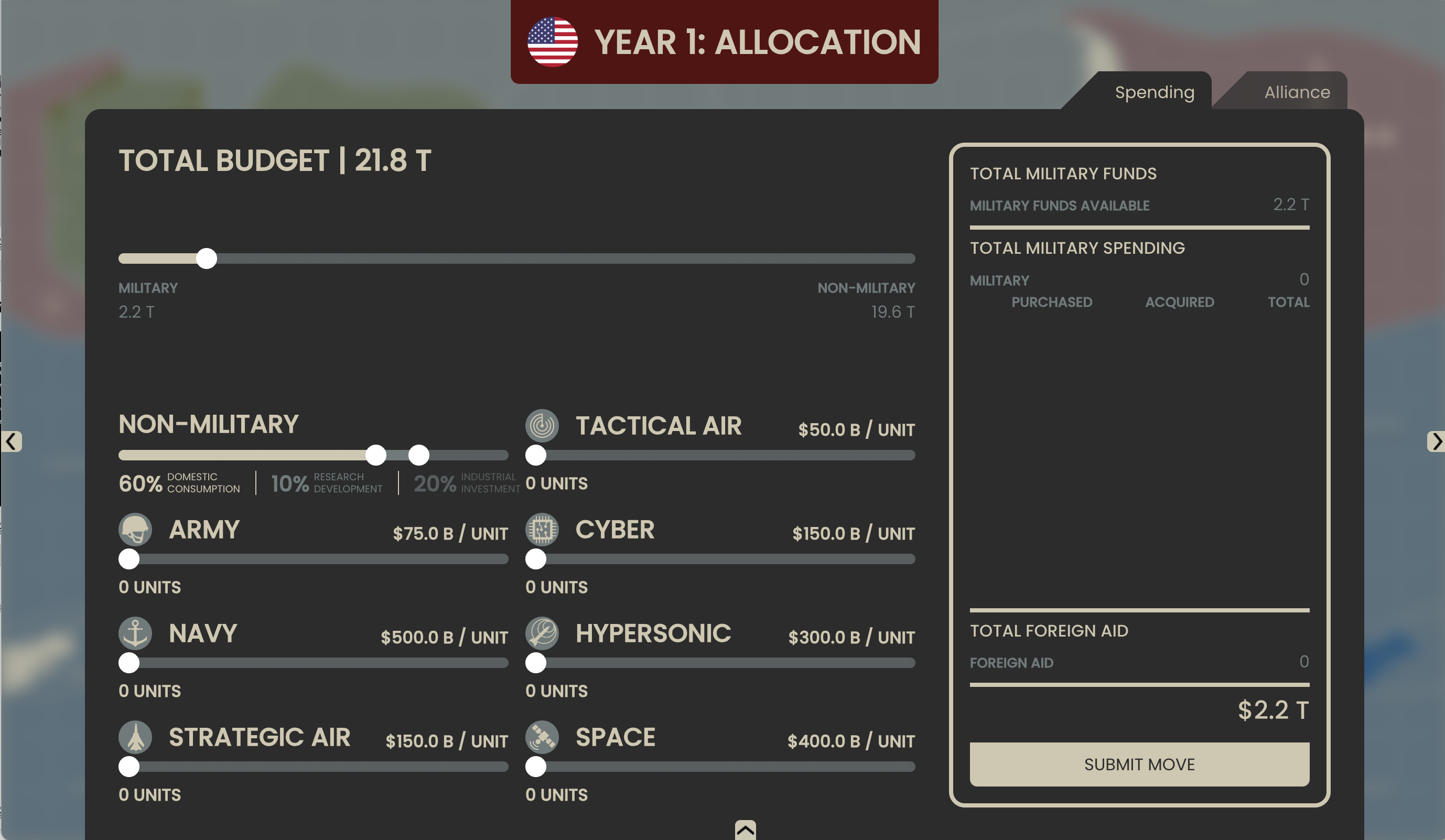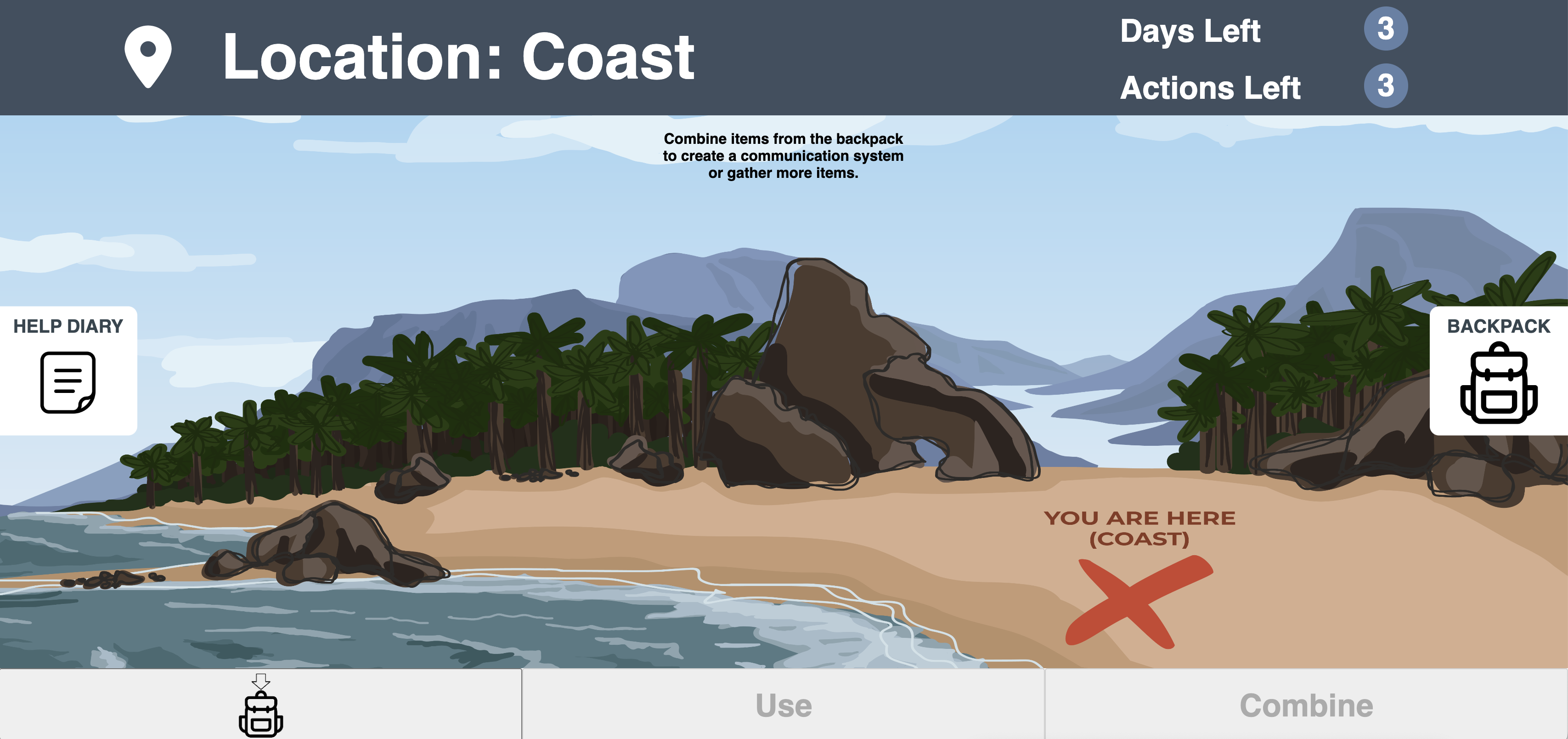
FORCES Research And Training Online Games
The FORCES Initiative researches and builds online games, including AI routines for training, learning, and human behavior research. The games combine rigorous theoretical and empirical insights published in scientific journals written by the senior faculty team members in collaboration with the junior student fellows. FORCES published two games and has one in development.
Tech Diplomacy
Justification and goals
The game trains the learners how to negotiate technological contracts and alliances at a global scale while upholding democratic ideals. The technologies can be civilian or defense-related. The immediate goal for the players is to win as many lucrative business contracts with as many countries as possible. The more advanced goal is to engage in business deals that do not lower a playing country’s democracy level.

Game mechanics
Small groups of players (3-5) play as a unit, each representing a great power (US, Germany, France, Russia, Brazil, India, Japan, China). The playing teams are tasked to win technology contracts with non-playing countries of the world (e.g., Nigeria, Indonesia, Italy, Poland, Vietnam, Australia, etc.). The contracts regard one product at a time (cell phones, drones, small arms, tanks, planes, etc.). Contracts are won by bidding. Teams propose bids with a target price. The teams must also accept a certain level of democratic freedom in the target country. As bids are accepted by AI agents or not based on cost analysis and the democracy score of a bidding team that may go up or down according to the level of democracy, they accepted for their new client. For example, if the US, whose democracy score is 8.5 of 10, wins a bid for a country for which it accepted a democracy score of 6, the US reputational democracy score goes down to 8.
Game outcomes
The game trains the players to handle the political costs entailed in business contracts with nations with different scores. Also, the game requires prior research since the bidders do not know the maximum price a buyer would accept or the amount. At the end of the game, the players get a report generated by an AI agent trained on a large language model, which explains in a narrative language why the bids were successful compared to those of their adversaries and if there were any missed opportunities. Finally, the players are asked to write a paper that justifies their choices and the balance between economic and political gains or losses.
Status and credit
The game is in Beta Version and was created with the Krach Institute for Tech Diplomacy funding. Dr. Sorin Adam Matei, the FORCES director, conceived, developed and managed the game. It was built in collaboration with Vincent Wang from Boilers App, The User Experience Group (UE GROUP), and junior fellows Keith Kwan and Daniel Lu.
Global Contest
Justification and goals
The game assigns the players the role of grand strategists in a pre-conflict world ten years from now. They are tasked to conduct research, make strategic technological investments, deploy the technologies, and execute strategic operations with them. The central goal is to defend the territorial integrity of an area, enlarge control, or deter an enemy from engaging in military solutions. Subordinate goals are to invest in military technologies or form alliances to develop and deploy them.


Game mechanics
The game uses real data and refers to real-life technologies, including cyber, space, and advanced hypersonic. A paper in print at Military Strategy Magazine describes and argues for using a set of strategic competencies in making decisions. The competencies include trade-off and systems thinking, negotiation, ethical defense reasoning, and adversarial empathy. The game trains the players to think and act strategically throughout the entire strategic process. AI large language models will explain in narrative format why the decisions were successful or not or why the game was won or lost.
Game outcomes
The game will be the core assignment for the Technology, War, and Strategy core class of the future Online MS program in Defense Technology.
Status and credit
The game is under development. The game was partly funded by Purdue Online and by the FORCES initiative. The game was conceived, developed, and managed by Dr. Sorin Adam Matei, the FORCES director, in collaboration with Boiler App and Junior Fellow Justin Hay, who received a special scholarship to develop the underlying engine. Vincent Wang and Daniel Lu developed the front end. Junior fellow Keith Kwant contributed to the game engine.
The pirate island of systems thinking
Goals and justification
The game tests the intellectual ability and practical combinatory skills of IT workers. Systems thinking is one of the most important skills in IT work, yet the hardest to measure via ordinary surveys.

Game mechanics
The game starts with a set of specific competencies derived from the literature – trade-off analysis, holistic analysis, time-based planning, empathy – which are embedded in the game's objective. The objective is to create a system of communication that is both efficient and secure. The game scenario puts the player in one of two teams shipwrecked on opposite sides of an island occupied by pirates. The player aims to communicate with the other party of shipwrecks with improvised tools (mirrors, flashlights, fabric, flashlights, etc.) without being seen or heard by the pirates.
Game outcomes
As the players choose various types of materials and combinations, they display various types of systems thinking capabilities. After the game, the participants are asked to complete a formal survey to compare the choices made during the game with self-perception of their systems thinking. The logs of each game session will be analyzed by a large language model, which will provide users with automated feedback regarding their optimal and suboptimal choices.
Status and Credit
Beta version. The game was created with funding from the cybersecurity unit of Rolls Royce. The game was conceived, designed, and managed by Dr. Sorin Adam Matei. He collaborated in the design process with Arpit Bawa, a graduate student, and Professor William Watson from the College of Education. The development was accomplished in collaboration with junior fellow Keith Kwan and the UE Group validated the functionality.